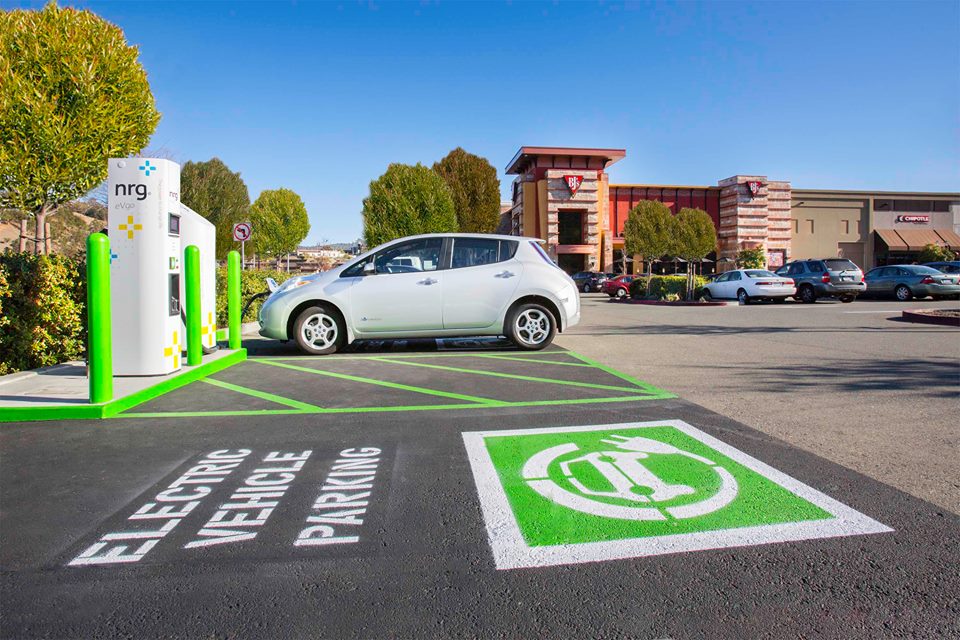Expanding the network of public charging stations makes driving an electric car far more convenient--and thus more attractive to more consumers.
That's why carmakers, businesses, and governments are working to open more stations worldwide.
These stations cost something to operate, of course, but often provide charging for free.
MORE: Can Electric-Car Fast Charging Be Profitable? Answer: Unclear
It remains a continuing challenge, however, that it's unclear how and whether businesses will be able to earn a profit from providing electric-car charging, a recent Navigant Research blog post argues.
Could that change in the future? Will electric-car charging ever be a sustainable business?
![Electric-car charging stations at Target in Fremont, CA [photo by Wilson F. via ChargePoint Network] Electric-car charging stations at Target in Fremont, CA [photo by Wilson F. via ChargePoint Network]](https://images.hgmsites.net/lrg/electric-car-charging-stations-at-target-in-fremont-ca-photo-by-wilson-f-via-chargepoint-network_100419184_l.jpg)
Electric-car charging stations at Target in Fremont, CA [photo by Wilson F. via ChargePoint Network]
While businesses must invest in charging stations and cover both their installation and operating costs, Navigant suggests the real issue may be how most stations are used.
The vast majority of public charging stations are 240-volt Level 2 units, which typically take several hours to charge an electric car.
ALSO SEE: Is There Any Business Model For Public Electric-Car Charging? Plug-In 2013 Report (Oct 2013)
Because of the long waiting time required for a full charge, many drivers see public charging as a "just in case" backup to home or workplace charging.
Navigant calculates that a business hosting a Level 2 charging station with two connectors, charging $2.00 per session, could recoup its investment in 5 to 6 years by hosting 10 charging sessions a day.
![Electric cars at charging stations and Tesla SuperCharger stations in Gilroy, CA [photo: Jack Brown] Electric cars at charging stations and Tesla SuperCharger stations in Gilroy, CA [photo: Jack Brown]](https://images.hgmsites.net/lrg/electric-cars-at-charging-stations-and-tesla-supercharger-stations-in-gilroy-ca-photo-jack-brown_100420156_l.jpg)
Electric cars at charging stations and Tesla SuperCharger stations in Gilroy, CA [photo: Jack Brown]
But the company doesn't think that adequate numbers of drivers would be willing to pay that fee.
The range in miles added by those $2.00 sessions would cost less than $1.00 with home charging, the author says.
In that context, it doesn't make financial sense for drivers to rely on public charging.
DON'T MISS: Electric-Car Charging Station Operator 350Green Charged With Fraud
That doesn't mean there isn't money to be made by having a Level 2 station around, though.
It's possible businesses will continue to offer charging for free as a way to attract more customers--and to get them to stay longer.
Charging, then, could be an added perk like free Wi-Fi at malls, coffee shops, and other places where people congregate.

NRG eVgo electric-car charging station
Even though a significant amount of Level 2 charging remains free, Navigant predicts revenue from electric-car charging as a whole will grow from $81.1 million in 2014 to $2.9 billion by 2023.
That includes money made from DC fast-charging, which is expected to be more lucrative than Level 2, but hasn't yet proven to be a reliable profit source either.
DC fast charging is indeed speedier--usually recharging electric-car batteries to 80 percent of capacity in around 30 minutes--and that may be something drivers willingly pay for.
Yet the costs of installing and operating a DC fast-charging station are greater than 240-Volt Level 2 stations.
With the number of plug-in electric cars on U.S. roads still well under half a million cars, and many of them lacking a fast-charging port, that market isn't yet robust either.
_______________________________________________











